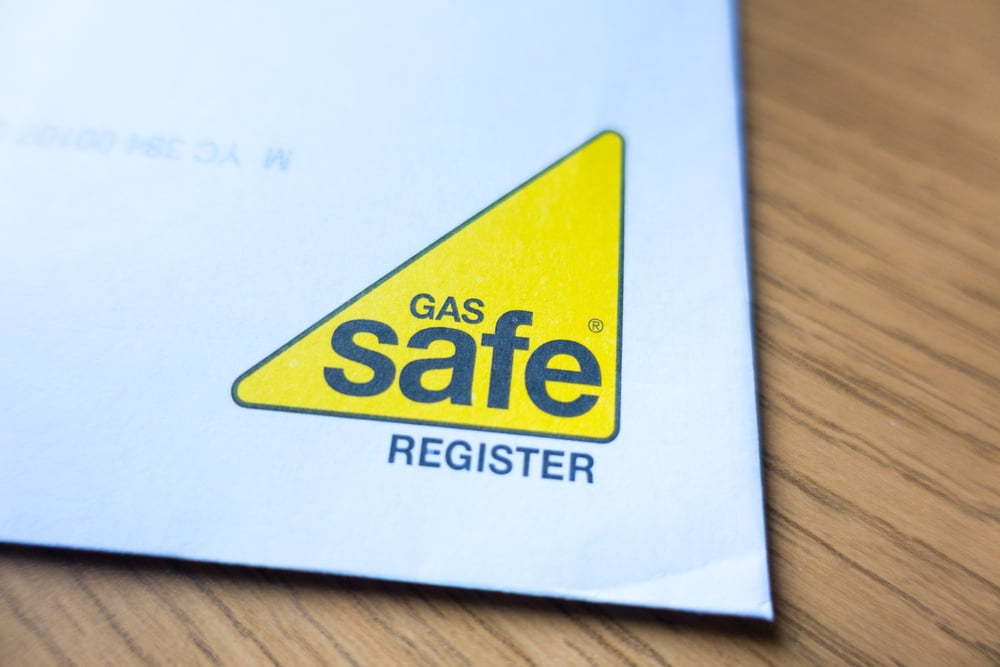Table of Contents
Does the hustle and bustle of life make us forget about caring for our family? Of course not! We don’t compromise with their safety and happiness.
But what we often forget about is caring for our homes. Another aspect that we neglect is gas safety. We understand since most people overlook it. Neither can we ignore its importance. It is crucial in securing the living environment at home.
In this detailed guide, we will tell you all about gas safety. What is gas safety? What does it entail? Who performs the check? Do you need one? The answers to all these queries are right here.
What Is Gas Safety?
A gas safety check or inspection is an assessment to ensure that all your gas appliances and pipework are safe to use. The main point of this inspection is to ensure that all the gas appliances, pipework, and flues are accurately fitted, maintained, and repaid.
Hence, they should be in their best condition. Designated professionals carry out this inspection. These professionals ensure that your home is safe from gas.
Is Gas Safety Inspection Important?
The answer is yes! Gas leaks are hard to recognize. Hence, gas safety inspection is necessary to ensure your health and quality of life.
-
Gas Leaks:
Gas leaks are highly unsafe. They can either start a fire or cause an explosion. To prevent gas leak accidents, a Gas Safe registered engineer will check your appliances and pipes for leaks. They will perform a tightness test at the gas meter.
-
Carbon Monoxide (CO) Gas:
We know that carbon monoxide is a colorless, odorless gas. But that’s why it’s hard to identify if there’s a leak. But CO poisoning is a life-threatening situation (in extreme conditions).
Even low (but prolonged) exposure to CO gas can lead to health issues. But we can inspect for CO gas and immediately address issues thanks to gas safety checks.
-
Maintaining Gas Appliances:
Nobody likes paying hefty utility bills due to a faulty appliance. A properly functioning appliance will use gas in a controlled way. But a faulty one will cause a gas leak, causing an increase in bills and the risk of explosions.
Therefore, a gas check prevents any of that from happening. It ensures that all your gas devices are proficiently working.
It will increase the appliances’ efficiency, saving on utility bills and reducing the house’s carbon footprint. Safe to say, a gas safety check is a way of assuring a healthy lifestyle.
Who Can Perform Gas Safety Checks?
Even if you are a fitter, you are legally not eligible to perform gas safety checks. Only a Gas Safe registered engineer can perform the inspections. They carry an ID card with them with their area of expertise. We suggest you check if the engineer or the business is on the gas-safe website.
These engineers have the necessary skills and knowledge. Hence, they are authorized to work on gas appliances. However, they have to renew their registration annually. Thus, while checking your engineer’s credentials, also ensure they are up to date with the industry regulations.
Other than them are gas-safe professionals. They are plumbers or boiler/ heating engineers with gas-safe certification. They are also qualified to work with gas appliances in their area of expertise.
The Gas Safety Check Process
A gas safety inspection will take 30-60 minutes to assess the house for potential gas hazards. Here is a list of processes you can consider during a gas inspection.
-
Assessing Visually:
The inspection begins by visually assessing all the gas appliances, heating and boiler systems, flues, and pipelines. Visual inspection is only for reasonable inspections, such as looking for signs of damage that may compromise safety.
-
Gas Appliance:
When it comes to ensuring the safety and functionality of your gas appliances, a thorough gas-safe inspection is a savior. Whether it’s your trusty boiler, stove, or oven, we examine every nook and cranny.
The inspection checklist includes various vital aspects, from checking the heat input and ensuring proper ignition to evaluating everything for sound operation and flame stability.
No stone will be left unturned as the inspector hunts for any signs of heat or distress on the appliance.
-
Pipelines:
A gas check means ensuring each appliance receives the right amount of gas and maintains a steady flow.
But that’s not all! A gas-safe engineer goes beyond just checking the gas levels. They also put on their detective hats and visually inspect the pipelines for any signs of trouble.
Think of black or brown marks lurking around appliances, leaks that might be hiding, and even corrosion that needs to be dealt with.
-
Ventilation or Flues:
While we’re focusing on the safety of your home, we cannot overlook the importance of pipelines. These lines carry combustion gas, such as waste or smoke, away from your appliances.
But beware! A malfunctioning vent can spell disaster, putting your appliances at risk of overheating or dangerous gas accumulation. But don’t worry because your trusted gas-safe professional is here to save the day!
Not only will they ensure that your ventilation system is in top-notch condition, but they will also ensure it meets current ventilation requirements.
However, if any appliances, flues, or pipework require repairing, it will take longer than the estimated time.
Who Needs Gas Safety?
According to the Gas Safety Regulation, the landlord is responsible for providing a gas-safe home for tenants.
Landlords are legally responsible for arranging a gas safety check annually. This check involves boilers, pipelines, and other gas appliances for efficient and steady working.
They must also provide a copy of the Gas Safety Certificate to tenants. If you are a tenant, make sure you get a current Gas Safety Certificate from your landlord.
Haven’t received one within 28 days after the inspection? You can ask your landlord to arrange a gas inspection today.
Landlords are also responsible for installing gas or CO alarms in all rooms with gas appliances (specifically boilers). It is also their lawful duty to replace or repair a faulty alarm.
As for homeowners, there are no legal obligations for gas inspection. However, we advise applying for a Gas Safety Certificate for their own safety.
Cost of Gas Safety Certificates
It depends on the gas-safe engineer or the company you choose. Nonetheless, you can consider an estimated amount of around £60-£90. This is the cost for a property with one boiler. If you have more than one, add another £10 to the quote.
Gather at least three quotes before applying for a Gas Safety Certificate to compare prices. Ask if the company charges per appliance. So you can determine the total amount beforehand.
Final Words
A gas safety check is essential if you prioritize a secure and comfortable home. It is necessary for the happiness and well-being of the resident. Learn about gas safety, who can perform them, and why you need them because it’s never too late. It is a way to create a healthy environment at home.
Not to forget that regular inspections can prevent any gas accidents that may cost you a fortune, at the very least. And the efficient working appliances will save on your utility bills and increase their life.
There are so many significant issues that you can’t overlook the importance of gas safety. So, be it a homeowner or a landlord, a safe house is a happy house. Arrange a gas-safe inspection today to enjoy a safe house with a peaceful mind.






1 Comment
Pingback: Navigating Plumbing Emergencies in the UK: Expert Insights on When to Contact Professional Help and When to DIY - TheArches